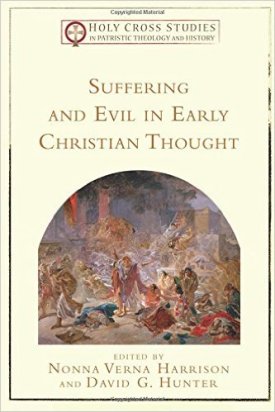 The wounds of the world feel especially exposed this year. I’m sure this can be truly said about many times, but the sense of exhaustion with violence and turmoil, and of deep longing for genuine peace, seems especially palpable these days. Nonna Verna Harrison confesses in the introduction of Suffering and Evil in Early Christian Thought that, “questions about God, suffering, and evil arise from a heart full of anguish. They tear at our faith in an age when faith seems weak anyway” (p.x). In the face of things like the mystery of pain and evil, one reasonable response is to turn to the past in order to see what wisdom can be gleaned from the early Christian tradition about how to think about these questions (p.x).
The wounds of the world feel especially exposed this year. I’m sure this can be truly said about many times, but the sense of exhaustion with violence and turmoil, and of deep longing for genuine peace, seems especially palpable these days. Nonna Verna Harrison confesses in the introduction of Suffering and Evil in Early Christian Thought that, “questions about God, suffering, and evil arise from a heart full of anguish. They tear at our faith in an age when faith seems weak anyway” (p.x). In the face of things like the mystery of pain and evil, one reasonable response is to turn to the past in order to see what wisdom can be gleaned from the early Christian tradition about how to think about these questions (p.x).
Therefore, the essays in Suffering and Evil in Early Christian Thought occupy themselves with explorations of how various figures from the Patristic period grappled with the problem of God, suffering, and evil. Theologians from both the early Christian West and East are included in the book’s pages. Hence, Irenaeus, Augustine, John Chrysostom, and Cyril of Alexandria all receive extended engagement from the volume’s contributors, which include the likes of John Behr, Gary A. Anderson, and Kallistos Ware. Continue reading

